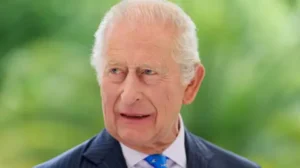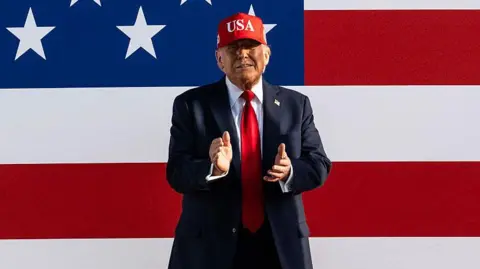**Trump’s New Tariff Threats: A Shift in International Relations**
Recently, U.S. President Donald Trump issued a stark warning to nations aligning with the Brics alliance, stating that these countries would incur an additional 10% tariff on imports to the United States. This announcement, made through his Truth Social platform, reflects a significant escalation in Trump’s trade policies as he aims to protect American interests in an increasingly complex global economic landscape.
Trump’s remarks, made on Sunday, directly addressed what he sees as a challenge to American hegemony posed by the Brics nations, which include Brazil, Russia, India, China, and South Africa, along with newly added members such as Egypt, Ethiopia, Indonesia, Iran, Saudi Arabia, and the United Arab Emirates. By positioning himself against the policies fostered by Brics, which he characterizes as “Anti-American,” Trump aims to deter nations from siding with a coalition that he believes seeks to diminish U.S. influence on the world stage.
In his post, Trump declared, “Any country aligning themselves with the Anti-American policies of BRICS, will be charged an ADDITIONAL 10% tariff. There will be no exceptions to this policy.” This statement not only reaffirms Trump’s longstanding criticisms of the Brics alliance but also underscores his administration’s firm stance on tariffs as a tool for foreign policy and economic strategy.
Over the years, Trump has voiced his concerns about the growth of Brics, asserting that it serves as a platform for member nations to collectively undermine U.S. interests in international finance and trade. The focus of recent discussions among Brics leaders primarily revolved around reforming institutions such as the International Monetary Fund (IMF) and re-evaluating the valuation of major currencies, initiatives that have drawn ire from the Trump administration.
The formation of Brics is seen as a significant geopolitical response to the dominance of Western economies, particularly the United States and European nations. As Brics expands its membership and influence, it increasingly represents a substantial portion of the global population, thereby amplifying its impact in international affairs.
This expansion has transformed Brics into a critical platform for developing nations to collaborate on economic and political issues, emphasizing solidarity in confronting systemic inequities in global governance. Current discussions among Brics leaders, held in Rio de Janeiro, Brazil, are aimed at positioning the alliance as a diplomatic counterweight against rising trade tensions and geopolitical conflicts.
The implications of Trump’s tariff threat extend beyond economics; they signal a potential shift in U.S. foreign policy. By using tariffs as leverage against nations perceived to be in collaboration with Brics, Trump is illustrating a willingness to engage in economic warfare to protect what he perceives as American interests.
Moreover, Trump’s approach raises important questions about the future of global trade relations. If countries face punitive tariffs for engaging with Brics, this may lead to increased tensions not only between the United States and Brics nations but also among countries caught in the crossfire of competing geopolitical agendas. U.S. allies may find themselves in a precarious position as they navigate their relationships with both Washington and the rapidly growing Brics bloc.
In conclusion, Trump’s warning to impose additional tariffs highlights a critical moment in U.S. international relations amidst a landscape shaped by evolving alliances and transnational economic issues. As the world watches, the repercussions of this ongoing tariff conflict will likely have lasting effects on global trade and diplomacy, ultimately reshaping the balance of power in the 21st century.











